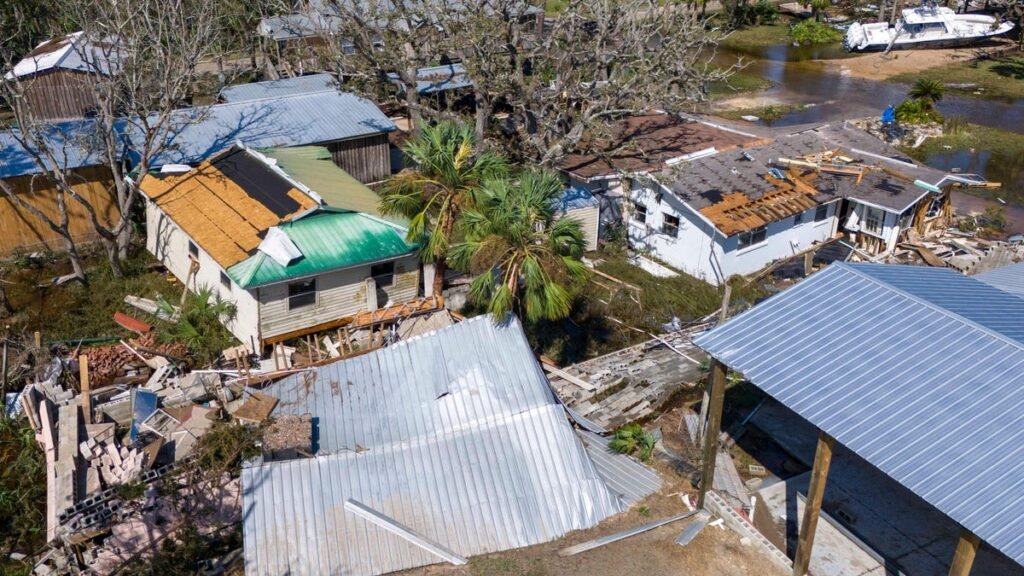If a new company comes to Florida with the promise of providing better coverage than the state’s Citizens Property Insurance, there’s no way to know if it has the ability to pay claims.
Condos getting hit hard by Florida’s property insurance premiums
Old Port Cove Towers condo president Mike Beck says windstorm insurance is over a million dollars in North Palm Beach building
- Florida law shields financially unstable property insurers from public scrutiny, keeping consumers uninformed.
- Critics argue this lack of transparency prevents consumers from making informed choices and supports struggling companies.
- Making stress test results public is a simpler solution than tackling climate change, yet remains unaddressed.
In Florida, the open records law doesn’t apply to any property insurer under state observation for financial soundness or solvency. Simply put, if the firm that provides your property insurance is on shaky financial ground, you’ll never know it — until it’s too late.
If a new company comes to Florida with the promise of providing better coverage than the state’s Citizens Property Insurance Corp., there’s no way to know if it has the ability to pay claims. State regulators are under no obligation to disclose the names of financially failing firms, how long they may have been in trouble or if they’re any closer to resolving their problems. Currently, seven private insurers fit that bill because they failed the state’s catastrophe stress test.
Who they are is still a mystery and will remain so until state leaders change the law.
It’s not an ideal time for the public to be in the dark about their property insurance. As homeowners in Florida face ever-higher premiums or the threat of losing property insurance coverage altogether, the idea that it’s legal to keep the names of troubled insurers out of the public eye is bad enough. But the fact that neither the Florida Legislature, the governor nor the state’s chief financial officer has made a move to legally lift this veil is frankly inexcusable.
Making stress test results public is easier than fixing climate change
High property insurance costs are an increasngly harsh reality in South Florida. This 2025 Atlantic Hurricane Season, which runs from June 1 to Nov. 30, is predicted to be above average, with the National Oceanic and Atmospheric Administration calling for between 13 to 19 storms and 6 to 10 hurricanes, with half of those expected to be major hurricanes.
Since Hurricane Andrew in 1992, Florida has seen a steady exodus of major insurance firms that once offered reasonably-priced wind insurance. The smaller firms that stayed faced greater risks and many of those insurers either left the state or folded. Citizens Property Insurance, created to be Florida’s insurer of last resort soon became a first option for tens of thousands policymakers who couldn’t find affordable — or any — coverage in the private market.
Facing a crisis that could wreck Florida’s booming housing market, state leaders sprung into action, pushing initiatives favored by the insurance industry. Litigation, the industry said, was the primary reason for rising premiums and insurance companies fleeing the state. In 2022, state lawmakers killed incentives that allowed policyholders to sue their insurers by changing state tort laws. Stricter guidelines for public adjuster contracts, standards, and compensation structures soon followed, and with each new change, lawmakers and industry officials promised lower costs over time.
One change that drew little notice initially was the enactment of Florida’s Catastrophe Stress Test. The tests, conducted by the Florida Office of Insurance Regulation, assess the ability of property insurers to withstand significant catastrophic losses by measuring reinsurance arrangements, including any insurance-linked securities, their capital and surplus. Unfortunately, that key bit of information seemed designed for industry protection, not public consumption.
“They make it far more difficult for consumers to be empowered with the facts, vote with their dollars, reward the strongest companies and support a more robust marketplace,” Martin Weiss, founder of Weiss Ratings, a Palm Beach Gardens ratings agency told Anne Geggis, the Post’s insurance reporter. “At the same time, they effectively provide cover for the weakest companies to continue luring unsuspecting consumers into high-risk insurance that’s more likely to be delayed, get denied, or even fail entirely.”
The Florida Legislature barely completed the one thing it was supposed to do — pass a state budget. They managed to do so in overtime after largely squabbling over questionable tax breaks, a debacle that included Gov. Ron DeSantis. They didn’t do much of anything to address property insurance, an issue Floridians are begging state leaders to better address.
Making stress test information available would be a far easier fix for state lawmakers and the Florida Cabinet than addressing the effects of climate change, or even acknowledging that that is a serious problem. You’d think our state elected officials and insurers could devise a disclosure that could inform policyholders and unsuspecting consumers without killing the industry.
Join the Conversation: The Palm Beach Post is committed to publishing a diversity of opinions. Email us at letters@pbpost.com. Letters are subject to editing, must not exceed 200 words and must include your name, address and a daytime phone number to confirm the letter is for publication. We only publish names and cities with the letters.

